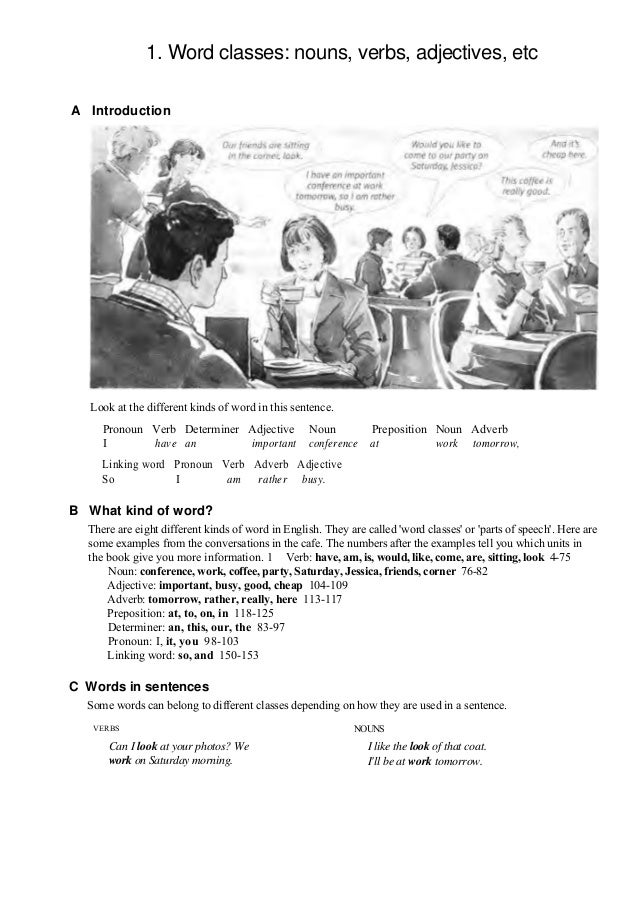16 Tenses In English Grammar Pdf Sentences


Aug 16, 2013. Tenses in English Grammar with Examples. Present Simple (present tense + common aspect), Present Progressive (present tense + progressive aspect), Future Perfect Progressive (future perfect tense + progressive aspect). Resources on Narrative tenses (grammar) for teachers and students of English as a foreign or second language (EFL / ESL), including printable worksheets, online.
Tips and ideas from Kerry Maxwell and Lindsay Clandfield on teaching the past perfect aspect. Introduction The concept of the past perfect is easier to grasp than that of the present perfect (see ) partly because the event is usually clearly in the past.
Still, when discussing the use of past perfect in relation to the past it is worthwhile to highlight the perfect aspect, as this may help make sense of the present perfect. For example, a quick explanation could be: The past perfect can be used to communicate something before the past or looking back from a past moment in time. This is what perfect means. The use of a timeline also works particularly well with this explanation. For example, the sentence.
Had you drunk a cup of coffee when you got out of bed this morning? They then ask this question to other students in the group.
Not convinced by the example sentence? Try these: • I arrived at school/work. Before that, I ate breakfast. • I left the house.
Before that, I turned off the lights. • I came to this class.
Before that, I didn’t study English. • I had a test. Before that, I reviewed all my notes.
You can make your own sentences that are relevant to the students’ lives. Activity: What had happened? When using the past perfect to explain what had happened earlier in the past you could set up a situation in which the students speculate on what could have happened. Here is a useful activity: Write up, or project, the following text on the board. Ask a student to read it aloud. Tell students to work in pairs and finish the last sentence of the paragraph (it’s pretty certain that it will be in the past perfect). Ask each pair to compare with another pair, and then with another.
Elicit the best possible conclusions to the paragraph. When he opened the door he was shocked.
There were clothes all over the floor. Dream Theater Six Degrees Of Inner Turbulence Download Blogspot on this page. His bookshelves were empty and the books were in a big messy pile. There was paper everywhere. The bathroom was also a mess: broken glass on the floor, his bottle of favourite shampoo gone. He looked around and knew immediately what had happened. They You can do this activity the other way around. Give them the last sentence and ask them to reconstruct the rest.
Sample last sentences: • She knew she had been caught. • They had changed bags.
• She had left him, for good this time. • He hadn’t seen the open window!
Activity: What's the difference? There are times when the use of past perfect is essential to avoid confusion of when something happened. Compare the following two sentences: • A.
The bomb exploded when the police arrived. The bomb had exploded when the police arrived. To check students' understanding of the difference, give the following sentences and ask them which sentence it most logically follows: A or B. • The police looked for evidence.
(B) • The police were too late. (B) • Two police officers were hurt. (A) • The police didn’t know there was a bomb there.
(A) You can do similar exercises with the following sentences, or invent your own. • The plane took off when we arrived • The place had taken off when we arrived. • She walked out when I came into the room. • She had walked out when I came into the room. Activity: Regrets, I've had a few. To practise the use of hypothetical past with the past perfect, a variety of exercises dealing with the function of expressing regret can be used.
Think of some regrets you’ve had in the past and prepare a list of sentences like the following: • I wish I had learnt how to sing. • I wish I had taken piano lessons. • I wish I hadn’t started smoking. • I wish I hadn’t spent so much money on clothes. Write on the board the keywords for each sentence. In this case, it would look like the following: • learn how to sing.
• take piano lessons. • start smoking. • spend so much money on clothes.
Explain to the class the regrets you have (using the sentence stem I wish I had/hadn’t ), elaborating on them a little. When you are finished, tell students to write your regrets out in full sentences. Check back that they have got the correct structure. Activity: Write on the board • I wish I had • I wish I hadn’t Ask students to complete these sentence stems in as many different ways as they can with true information about themselves. Then tell them to compare their regrets with a partner. Note: You could do the same exercise using the sentence stem If only I had.